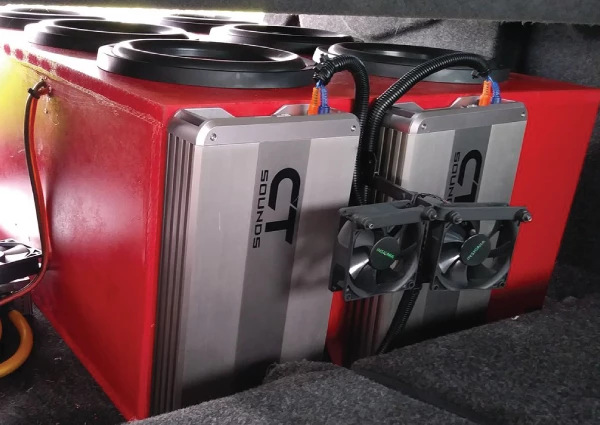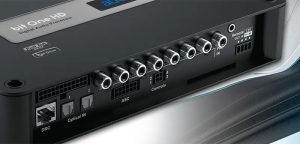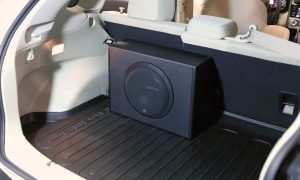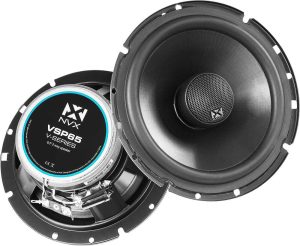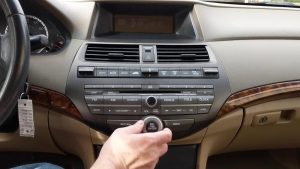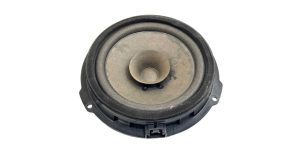When it comes to upgrading your car’s audio system, installing a powerful amplifier (amp) is a common choice for enthusiasts seeking superior sound quality. As you dive into the world of car audio, you might find yourself wondering: “Is it normal for an amp to get hot?” In this article, we’ll delve into this question and shed light on many aspects related to car stereo amplifiers and their temperature.
Contents
Understanding Amplifier Heat:
Modern car stereo amplifiers are designed to deliver robust power to your speakers, enhancing audio quality and volume. However, the process of amplification inherently involves converting electrical energy into sound energy, and this conversion isn’t perfectly efficient. As a result, a portion of the electrical energy is dissipated as heat. Therefore, it’s completely normal for an amp to generate some heat during operation.
Factors Affecting Amp Temperature:
- Output Power: The higher the power output of your amplifier, the more heat it’s likely to produce. Amplifiers pushing more wattage will generally get warmer compared to lower-power units.
- Load and Impedance: The speakers you connect to your amp influence its temperature. Lower speaker impedance (ohms) can lead to higher current draw and increased heat generation.
- Volume and Usage: Playing music at higher volumes for extended periods demands more power from the amp, causing it to heat up further.
Heat Management in Amplifiers:
Manufacturers implement several strategies to manage heat in car stereo amplifiers and prevent overheating:
- Heat Sinks: Amplifiers are equipped with heat sinks – metal components designed to dissipate heat efficiently. These heat sinks have fins that increase the surface area for better heat dissipation.
- Fans and Ventilation: Some high-end amplifiers feature built-in fans for active cooling. Proper ventilation in the amplifier’s installation location also aids in dissipating heat.
- Thermal Protection: Many amplifiers include thermal protection circuits. These circuits monitor the amp’s temperature and automatically reduce power or shut down the unit if it reaches critical levels.
When Heat Becomes a Concern
While some heat generation is expected and harmless, excessive heat can be problematic. Here’s when you should be concerned:
- Burning Smell: If your amp emits a burning odor, it’s a clear sign of overheating. Immediately turn off your audio system and address the issue.
- Auto Shut-Down: If your amplifier frequently goes into protection mode and shuts down, it could be due to excessive heat. Repeated shut-downs can damage both the amp and your speakers.
- Performance Issues: Overheating can lead to reduced audio quality and distortion. If you notice a drop in sound quality, it’s worth investigating the temperature of your amp.
How hot should an amp get
The temperature of an amplifier can vary depending on factors such as its design, power output, and usage conditions. In general, amplifiers can become warm during operation, and some heat is normal. However, excessive heat can be a sign of a problem or inefficiency in the amplifier.
Here are some general guidelines:
- Warm to the touch: It’s common for an amplifier to feel warm during operation. If it’s just slightly warm to the touch, it’s usually not a cause for concern.
- Hot but not burning: If the amplifier becomes hot but not hot enough to burn your hand, it might still be within normal operating temperatures. However, it’s a good idea to monitor it and make sure it doesn’t get excessively hot.
- Excessive heat: If the amplifier becomes extremely hot, to the point where it’s uncomfortable to touch, or if it shuts down unexpectedly due to overheating, there may be an issue. This could be caused by insufficient ventilation, a malfunctioning fan (if the amp has one), or other internal problems.
If you notice that your amplifier is consistently running very hot, here are some steps you can take:
- Check ventilation: Ensure that the amplifier has proper ventilation. Make sure there’s enough space around it, and if it has a fan, make sure it’s working.
- Inspect the environment: If the amplifier is in a very hot environment, it may struggle to dissipate heat efficiently. Consider relocating it to a cooler space.
- Reduce load: If you’re driving the amplifier hard, it may generate more heat. Consider reducing the volume or load on the amplifier.
- Professional inspection: If the issue persists, it’s advisable to have the amplifier inspected by a qualified technician. There could be an internal problem that needs attention.
Always refer to the manufacturer’s guidelines and specifications for your specific amplifier model, as they may provide information on acceptable operating temperatures and conditions. If you’re unsure or concerned, it’s best to consult with the manufacturer or a professional technician.
Tips to Manage Amplifier Heat:
- Proper Installation: Ensure your amp is installed in a location with adequate ventilation. Avoid placing it in surrounded spaces or near heat sources.
- Ohm Matching: Match your amplifier’s impedance rating with your speakers to avoid straining the amp and generating excess heat.
- Volume Control: While it’s tempting to crank up the volume, avoid prolonged high-volume listening sessions, especially in hot weather.
- Regular Maintenance: Keep your amp and its surroundings clean. Dust and debris can obstruct heat dissipation.
Final Thoughts
So, is it normal for a car stereo amp to get hot? Absolutely. Heat generation is an inherent aspect of amplifier operation, resulting from the energy conversion process. While some heat is expected and manageable, excessive heat can lead to performance issues and even damage. By understanding the factors influencing amp temperature and following proper heat management practices, you can enjoy a superb audio experience without letting heat concerns dampen your enjoyment.
